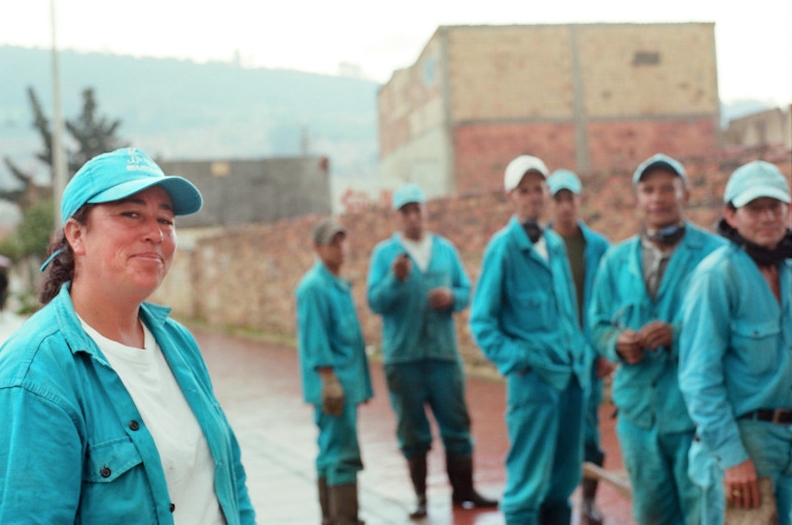Coauthor Renata López
Women have historically suffered from inequality in the labor market. Although some progress has recently been made, the gap widened during the pandemic. Therefore, one of the greatest challenges for a social and economic recovery is to address women’s labor rights and for the State to ensure that we can generate our own income, achieve autonomy and have employment opportunities with safe working conditions.
The gaps suffered by women in Chile and in the rest of Latin America are challenges that must be addressed, not only at a regional or national level, but also at a sub-national level. For this reason, it is necessary not only to focus on the Chilean reality, but also to address the problem in a decentralized manner and with a territorial perspective.
First of all, it should be pointed out that inequality in female labor participation is a product of the gender division of labor. Traditionally, women have performed reproductive and care work (unpaid), services and commerce, while in areas such as industry, agriculture and financial markets, the labor force is mostly composed of men. In 2010, in Chile, men reached an average labor participation of 74.2%, while women reached 46.8%, according to data from the National Institute of Statistics (INE, 2021).
During the last decade, women progressively increased their participation in paid work. Between November 2019 and December 2020, female labor participation reached its maximum value of 53.3%. However, this growth was impacted by the health and economic crisis produced by the Covid-19 pandemic, such that in the three-month period between April and June 2020, women’s labor participation dropped to 41.2%, while that of men reached 62.7%. Although, between November and December 2020—with the pandemic already at an advanced stage—female participation increased to 45.3%, it is clear that there was a setback compared to the scenario prior to the health crisis.
In a survey, almost a third of women responded that the main reason for not participating in the labor market was the permanent family situation, i.e., the need for unpaid domestic and care work (INE, 2021). The economic and labor impact on women is important because many households are headed by women, so savings are quickly depleted and the indebtedness of these families grows, according to the Central Bank of Chile (2021).
But beyond the pandemic, one of the great challenges to be tackled in order to reduce inequality in labor participation between men and women is the reconciliation of work and family life. Labor-reactivation policies, with a focus on women, must go hand in hand with the institutionalization of a care system that allows ending the gaps that come from structural issues. For instance, care work has historically been the exclusive responsibility of women, which translates into extreme working hours in the case of women who also have paid jobs.
However, the reality for women is heterogeneous. Gender gaps vary to the extent that other factors deepen such inequality. In the case of La Araucanía—Chile’s poorest region and where for years there has been a deep conflict between the State and the Mapuche people—there is a multidimensional crisis, with 17.4% of the population in poverty and 5.9% in extreme poverty, which places it among the most disadvantaged regions at the national level.
The CASEN survey, or National Socioeconomic Characterization Survey, indicated in 2020 that, in this region, 61.5% of women were inactive in the labor market and 32% of them indicated that the main reason for not looking for work was household chores and caring for others. A report by the Labor Observatory of La Araucanía (2021) indicated that female labor participation prior to the pandemic reached 48% and that, due to the health situation, this dropped to 36% in the last quarters of 2020. Furthermore, since the crisis began, 42,000 jobs have been lost for women in the region and only 19,000 have been recovered.
In Chile there are labor integration policies for women under the responsibility of the Ministry of Women and Gender Equity, including “Women Heads of Household in La Araucanía”, “4 to 7” or “Women Entrepreneurship and Good Labor Practices”. Although these policies may contribute to taking up the challenges of economic and labor reactivation, they are certainly not enough. In the new pandemic context, it is also necessary to redesign policies, review their instruments and distribution of resources with a regional perspective, and it is also important for the State to recognize care and domestic work. It is also necessary to make decisions that consider regional differences and address their specific inequalities.
The employment situation of women suffered a major setback due to the pandemic and the impact was greater for women with structural difficulties and who are unable to achieve economic autonomy and full labor development. Therefore, progress towards effective co-responsibility, the end of gender stereotypes, job security and social protection for those who perform care work are an urgent step forward.
Translated from Spanish by Ricardo Aceves











